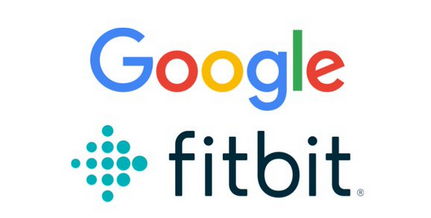
Earlier this month, Google finalized its acquisition of wearable-device maker Fitbit. The deal, which costs around $2.1 billion, is seen by analysts as a move by Google parent company Alphabet moves into wearables as the company seeks to diversify their portfolio further. With Fitbit, Google further expands its hardware presence, with Fitbit joining the ranks of Motorola Mobility and Nest Labs.
However, not everyone is happy with the recent move. Several users have placed distrust in the merger, as some Fitbit users are seeking to ditch their Fitbit wearables. In an interview with CNBC, Mike Carpenter, a Fitbit user stated:
"I'm not only afraid of what they can do with the data currently, but what they can do with it once their AI advances in 10 or 20 years. Health insurance companies would love to get their hands on that data, and their purposes wouldn't be advertising, so is that what they are going to do with it? They didn't spend the money not to utilize it in some way."
Indeed, there are other users who feel the same way as Mr. Carpenter. Over at Twitter, a number of users have also stated their distrust with Google. Twitter user Tanya Janca (@shehackspurple) states in her tweet:
"I do not want my data that I consented to you collecting transferring to Google. With news of the acquisition of your company I intend to sell my Fitbit & delete my account.
"How do I ensure that none of the data I allowed you to collect ends up in their hands?"
A General Distrust Of Google
Some users have even stated that they are considering moving to the Apple Watch, citing the same woes of how Google will treat their data when the merger fully pushes through. Other users yearn for the return of more simplistic wearables such as the Pebble, stating how wearables controlled by tech giants threaten privacy when it comes to health.
Recent privacy concerns regarding the partnership between Ascension, one of the largest health care providers in the country, and Google have only served to increase suspicion towards the search engine giant.
This has not been the first time Google's security measures has come under question. In 2018, Google revealed that there was a data breech in the Google+ database, with over five million accounts compromised. As a result, Google+ was eventually shutdown.
The Details of the Deal
Google reportedly bought out Fitbit at $7.35 per share in cash, totaling $2.1 billion, 19% more than the stock's closing price on the day of the deal's announcement. The deal is expected to be closed and completed in 2020. Once news of the acquisition came into light, Fitbit's shares jumped 16%, while Alphabet, Google's parent company, rose by 0.46%.
However, this is not the biggest acquisition Google has made on the hardware side. Google's purchase of Motorola Mobility in 2011 cost around $12.5 billion was the highest buyout the company has ever done, granting them numerous patents as well as access and expertise in smartphone manufacturing. In 2014, Nest Labs was purchased for $3.2 billion, eventually integrating its products with Google's hardware division. While the company initially only manufactured smart thermostats, it has expanded into various other smart home devices.
See Also: Google Under Fire for Possible Mishandling of Personal Health Data
ⓒ 2025 TECHTIMES.com All rights reserved. Do not reproduce without permission.




